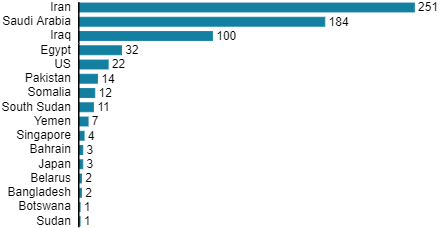Do you agree with the death penalty ? Do you think its barbaric, cruel or its fully deserved?
Sometimes the judicial system can get it wrong and find the wrong person guilty.
Executions are known to have been carried out in the following 25 countries in 2006:
Bahrain, Bangladesh, Botswana, China, Egypt, Equatorial Guinea, Indonesia, Iran, Iraq, Japan, Jordan, North Korea, Kuwait, Malaysia, Mongolia, Pakistan, Saudi Arabia, Singapore, Somalia, Sudan, Syria, Uganda, the United States of America, Vietnam, Yemen
Sometimes the judicial system can get it wrong and find the wrong person guilty.
Executions are known to have been carried out in the following 25 countries in 2006:
Bahrain, Bangladesh, Botswana, China, Egypt, Equatorial Guinea, Indonesia, Iran, Iraq, Japan, Jordan, North Korea, Kuwait, Malaysia, Mongolia, Pakistan, Saudi Arabia, Singapore, Somalia, Sudan, Syria, Uganda, the United States of America, Vietnam, Yemen







